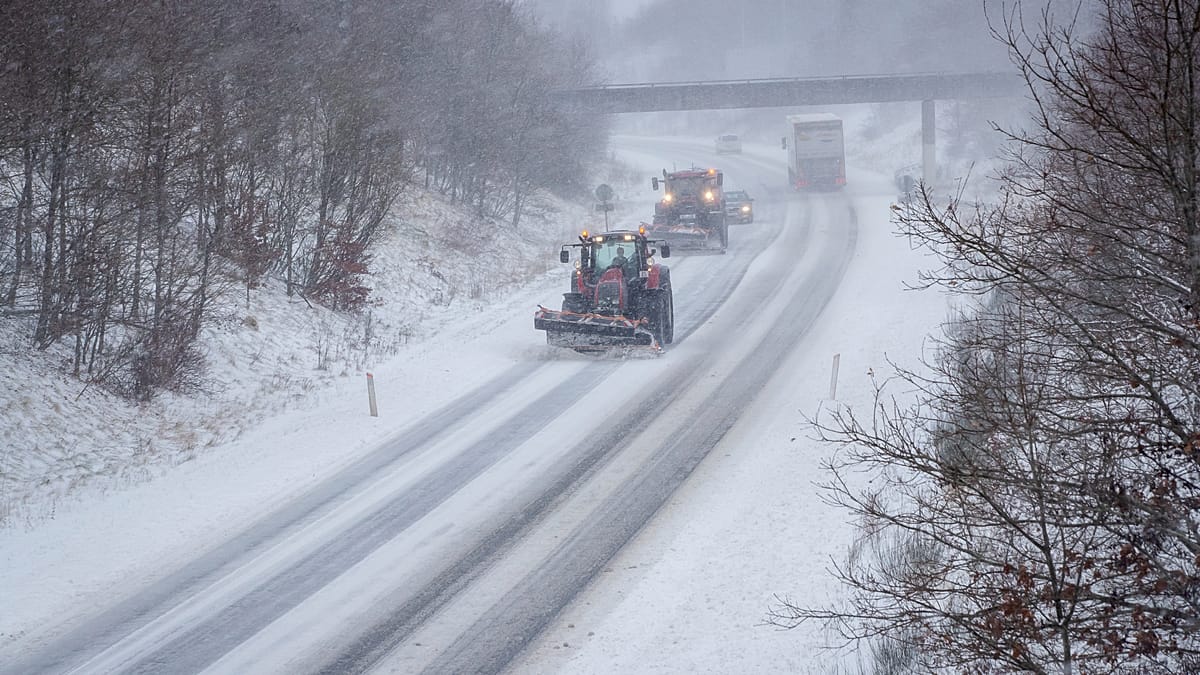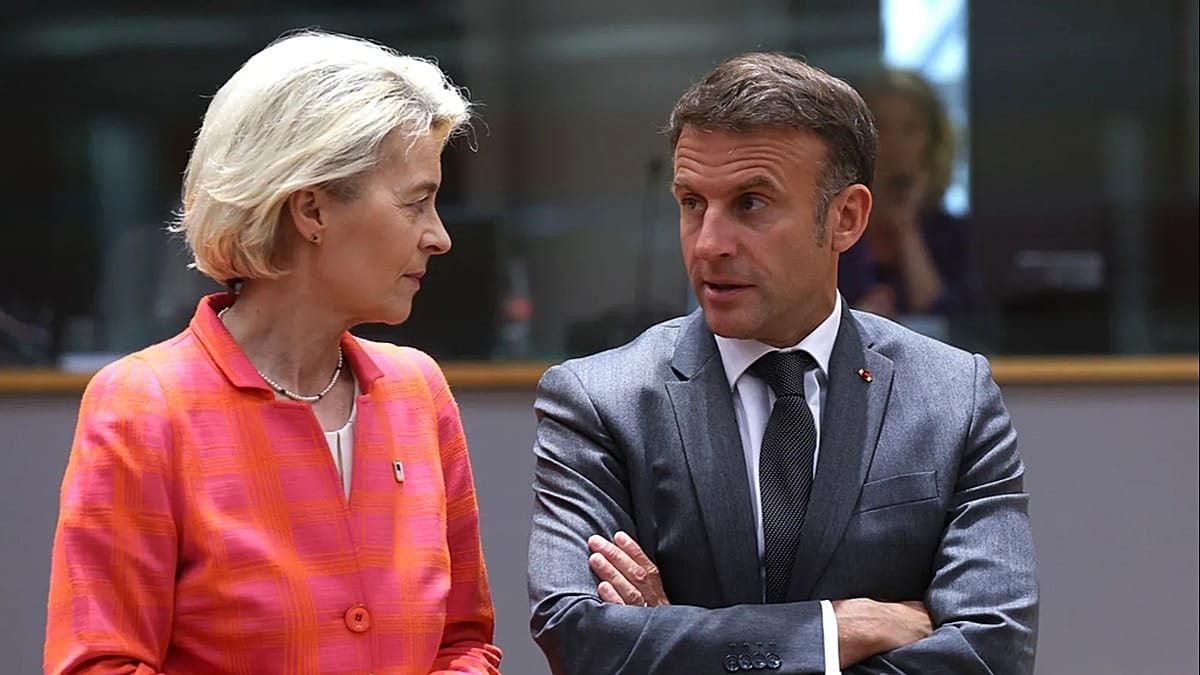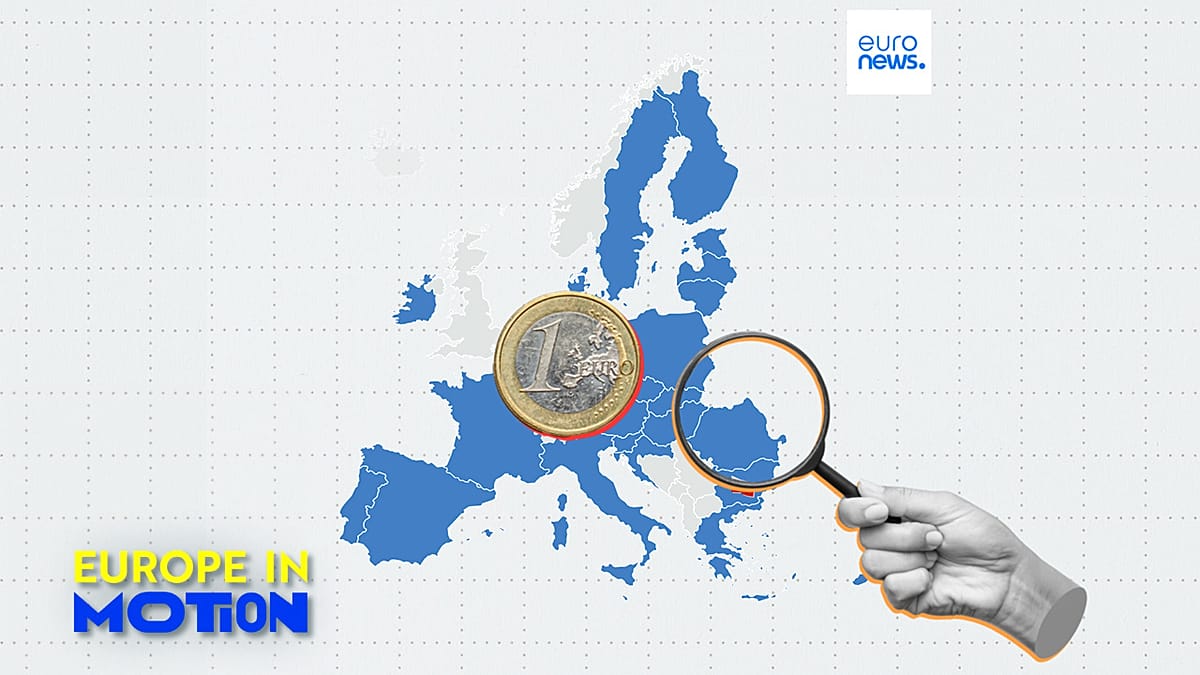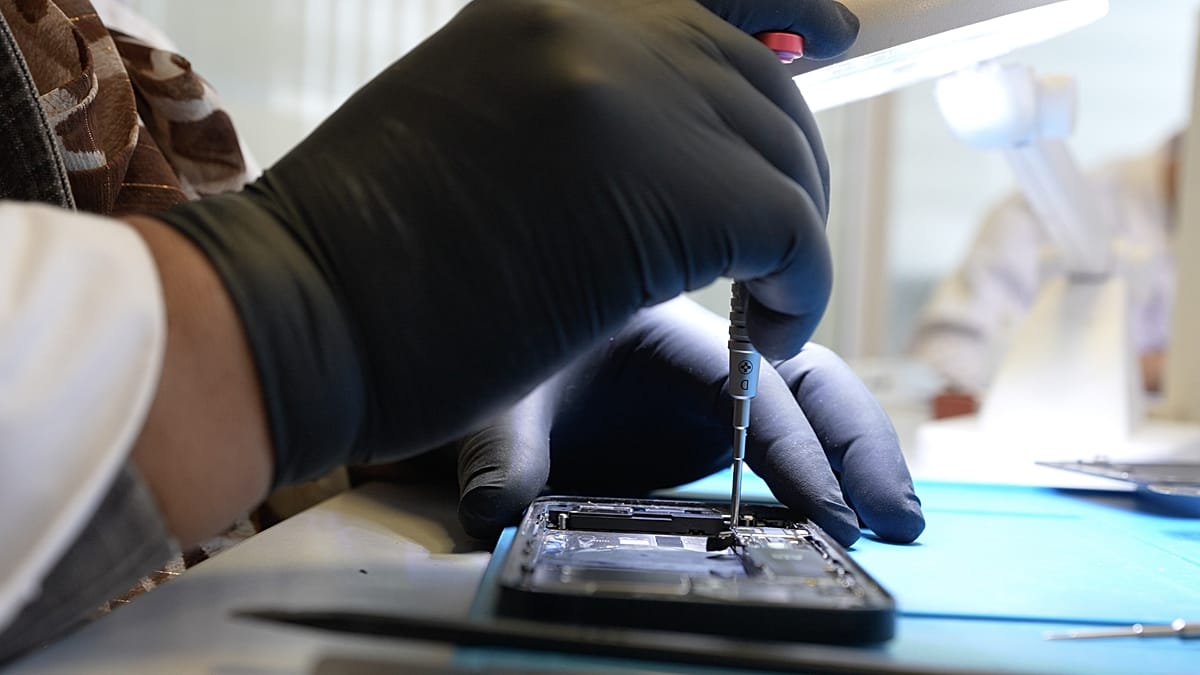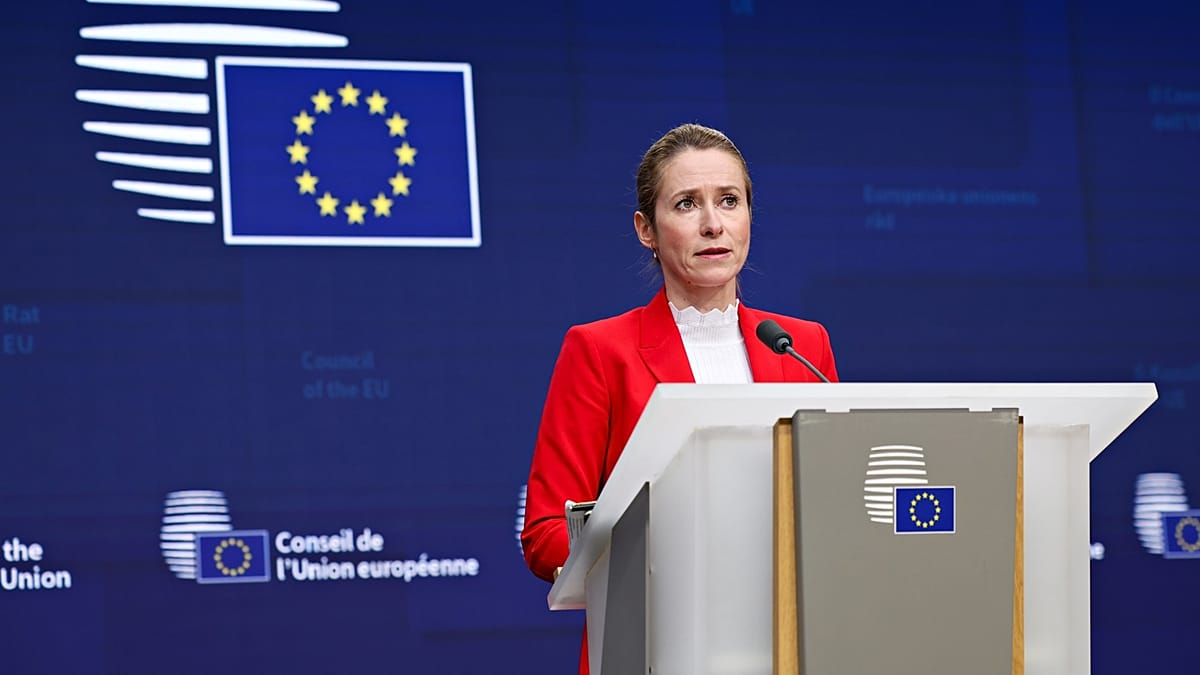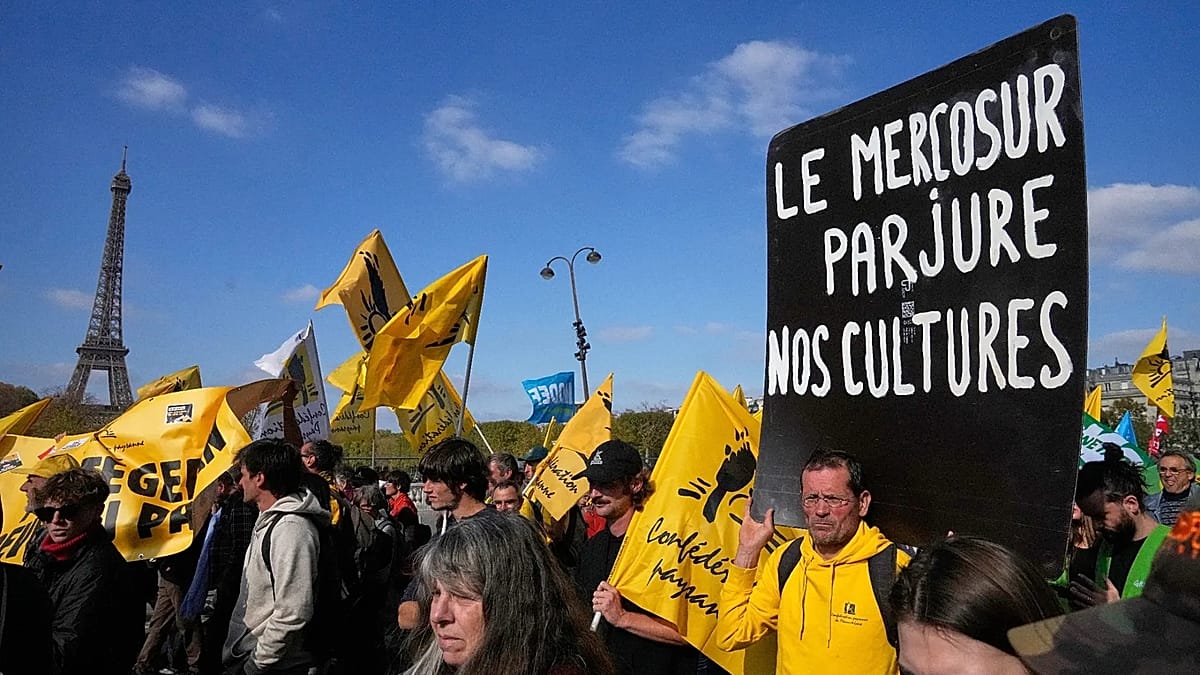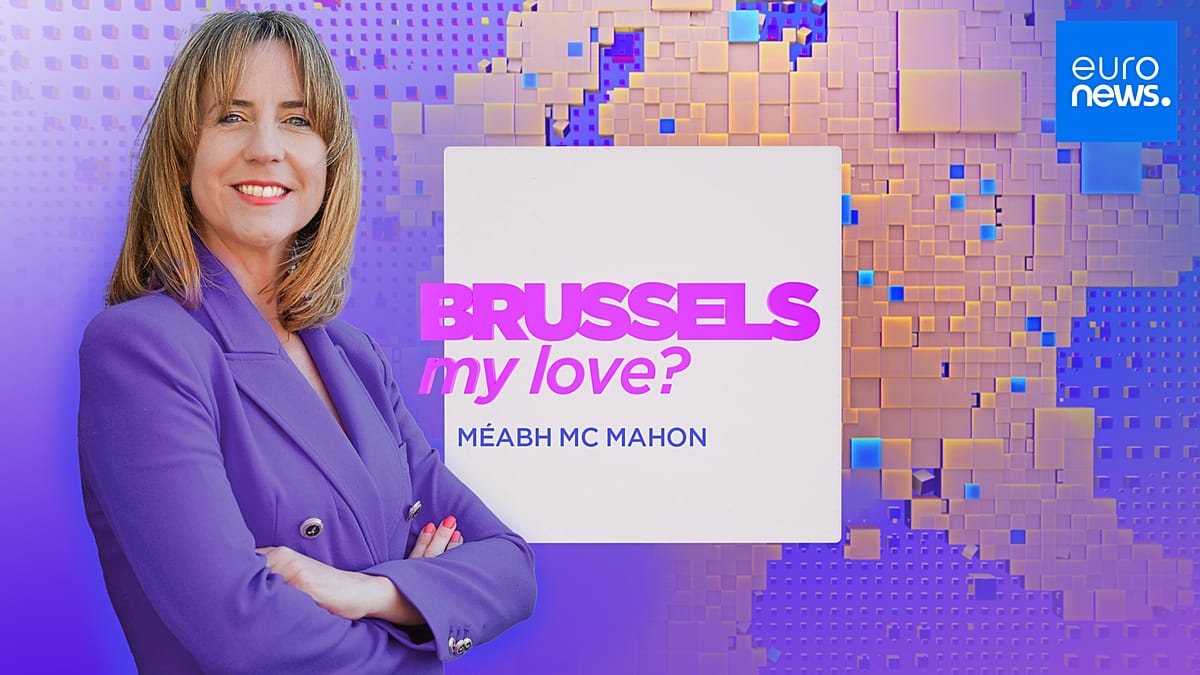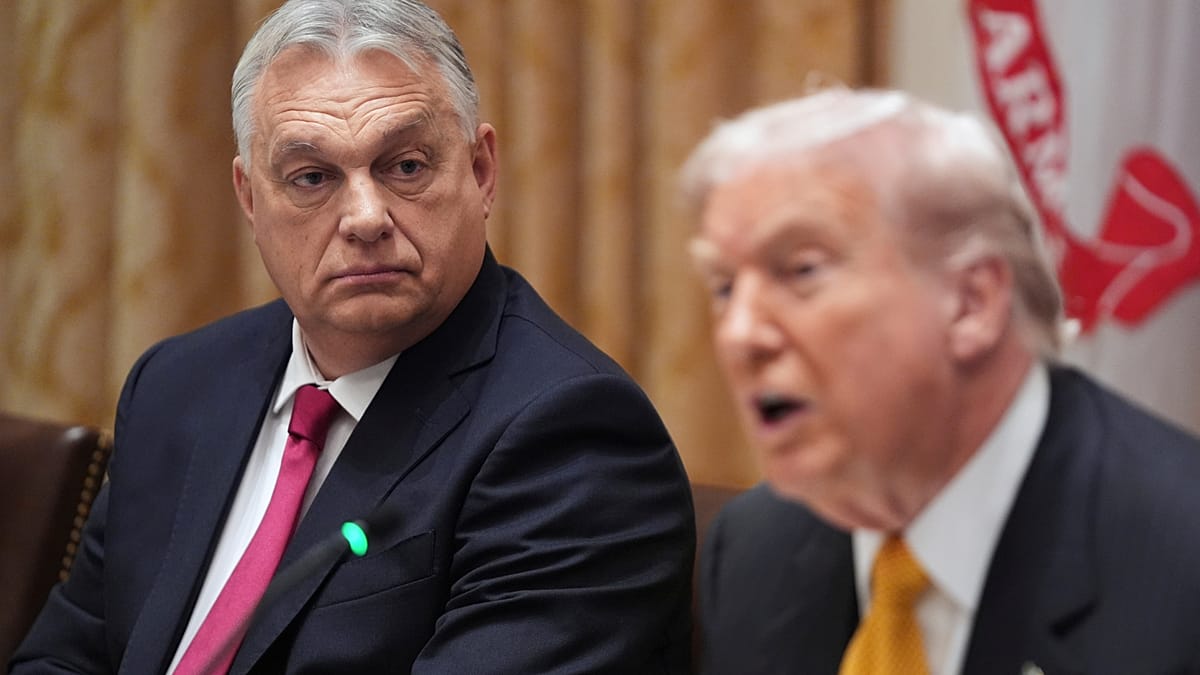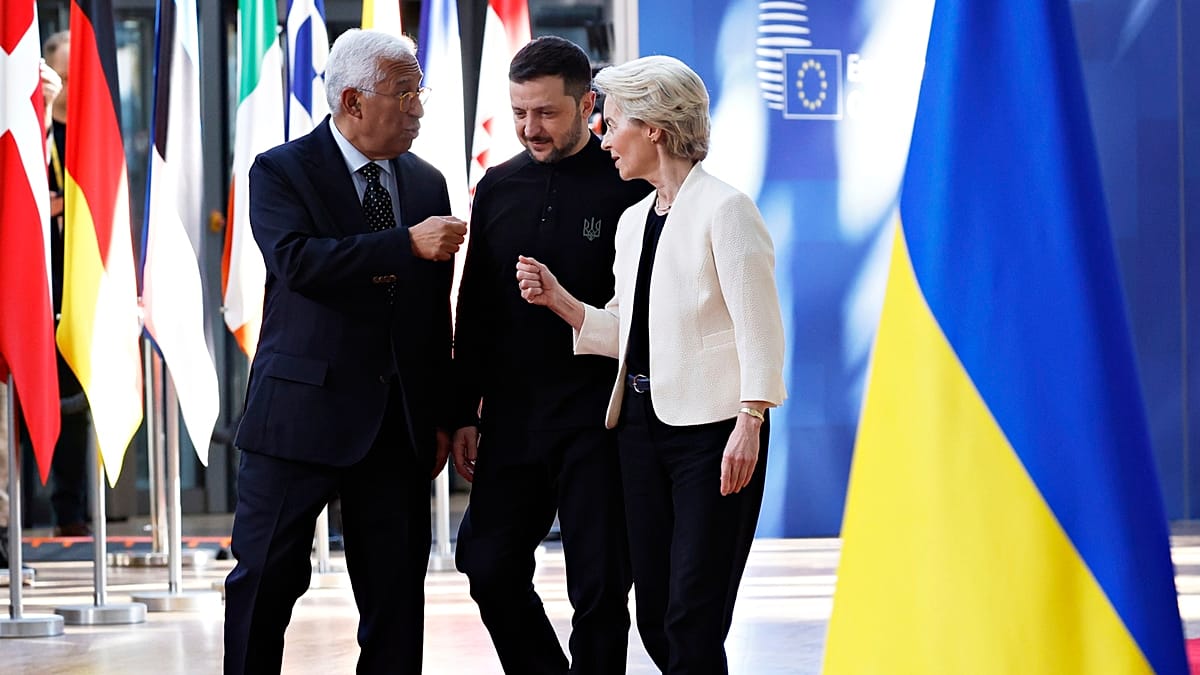
The 28-point peace plan drafted by the US and Russia to end the war in Ukraine stunned Europeans with its sweeping provisions perceived as too favourable for Russia.
The terms also implied a loss of control for the Europeans about their own security framework and would see them stripped of key leverage points over Moscow.
The EU and allies are now pushing to have a say on what comes next, particularly on matters that would require their participation – from sanctions to defence.
These are the key issues in the talks that directly concern Europeans:
NATO accession for Ukraine in focus
Ukraine has long aspired to join NATO, the transatlantic alliance that protects its members with a clause of collective defence. Battered by Russia’s invasion, Ukraine sees Article 5 as the most powerful deterrence against future aggression.
Earlier this year, Secretary General Mark Rutte spoke about an “irreversible path of Ukraine to enter NATO”, but the roadmap for Ukraine is far from clear, with no consensus among allies. For Moscow, Kyiv’s admission is a red line.
The draft plan leaked last week featured a broad clause to keep Ukraine out – forever.
“Ukraine agrees to enshrine in its constitution that it will not join NATO, and NATO agrees to include in its statutes a provision that Ukraine will not be admitted in the future,” it said.
The wording of the sentence went down badly with Europeans, as it would effectively impose a Russian veto on the alliance, which could set a dangerous precedent.
Europeans insist that any decisions involving NATO must be made by NATO allies only.
This logic would also apply to another element of the peace plan: the potential deployment of NATO troops on Ukrainian soil. This idea was initially pitched by the “Coalition of the Willing” led by France and the United Kingdom.
In September, French President Emmanuel Macron announced 26 countries had agreed to send troops to Ukraine as part of a “reassurance force” or to provide assistance on land, at sea or in the air as part of future security guarantees.
Sanctions relief for battered Russian economy
The European Union has imposed 19 packages of sanctions against Russia in an effort to cripple Russia’s ability to finance the war.
The sanctions are vast and complex, covering imports, exports, banking, energy, transport, defence, services and media, as well as a blacklist of over 2,700 individuals and entities accused of aiding the Russian war machine.
Sanctions relief has always been at the top of the Kremlin’s wish-list.
A first attempt in March was firmly rebuffed by Brussels. Now, they are giving it another try: the 28-point plan speaks of lifting sanctions “in stages and on a case-by-case basis”.
Whether the economic reprieve ever happens will largely depend on the EU, which governs the largest sanctions regime among Western allies.
Officials and diplomats are reluctant to undo the sanctions so fast and with no guarantees that Russia won’t attack Ukraine again.
As talks continue, the bloc is expected to push for a drawn-out, carefully designed timeline that can allow it to reimpose the hard-biting penalties at any given moment.
Even if the relief were to be granted, some crucial components exceed the realm of sanctions. The EU is currently working on an irreversible phase-out of all purchases of Russian energy by 2028, depriving Moscow of its once-reliable clientele.
Immobilised assets of Russian Central Bank
No sanction has given the bloc greater leverage than the immobilisation of the assets of the Russian Central Bank, worth a whopping €210 billion across EU territory.
The assets are at the forefront of an audacious plan to issue a reparations loan that can cover Ukraine’s financial and military needs for 2026 and 2027. With the US retreating from assisting Kyiv, the weight falls entirely on the EU.
The reparations loan would use the cash balances generated by the Russian assets and be repaid only if Moscow agreed to compensate for war damages.
But the 28-point plan published last week dramatically flipped the script as it envisages splitting the assets into two separate investment funds that would allow both the US and Russia to benefit commercially.
That has caused outrage and dismay among Europeans, who see the assets as their most powerful tool to make Russia pay for the damages caused.
With negotiations moving at a fast-tracked pace, Europeans insist the assets cannot be unfrozen easily, and Russia should pay compensation in the form of reparations. An official told Euronews the plan published last week was “economic brutality”.
António Costa, the president of the European Council, said a decision on how to plug Ukraine’s financing gap would be taken in mid-December.
Global reintegration for Russia in G8
The 28-point plan also states that Russia should be invited back to the G8 in a move that would end Putin’s isolation from the international stage and the great global powers. President Trump has publicly stated he would support bringing Russia back.
Russia was indefinitely suspended from the G8 in 2014 following the annexation of Crimea. The group was rebranded as the G7 and has since kept the name.
“Putin speaks to me, he doesn’t speak to anybody else because he was insulted when he got thrown out of the G8,” Trump said in June, calling the suspension a “big mistake”.
As a consensus-based organisation, bringing Russia into the group would require the approval of all the sitting members, including Germany, the UK, France, Italy, Canada and Japan, as well as the EU. Bringing Russia would represent a failure of their policy of isolation as punishment for attacking Ukraine.
Analysts argue that such a move would be the equivalent of a political amnesty for Putin.
EU accession for Ukraine
Moscow is dead set against Ukraine’s accession into NATO, but it has been less vocal about its joining the EU. Washington is also in favour of it as a consolation prize for Kyiv.
“Ukraine is eligible for EU membership and will receive short-term preferential access to the European market while this issue is being discussed,” the 28-point plan says.
Brussels has said accession is exclusively “merit-based” and is not the result of politics or external agreement. As with sanctions, accession is entirely dependent on unanimity.
While Ukraine has made technical progress as a result of structural reforms, Hungary’s veto has prevented the country from making any advancements this year.
Ursula von der Leyen, the president of the European Commission, said over the weekend it is up to Kyiv to decide what its future alliances will look like, not external pressure.
“Ukraine must have the freedom and sovereign right to choose its own destiny,” von der Leyen said in a statement. “They have chosen a European destiny.”

